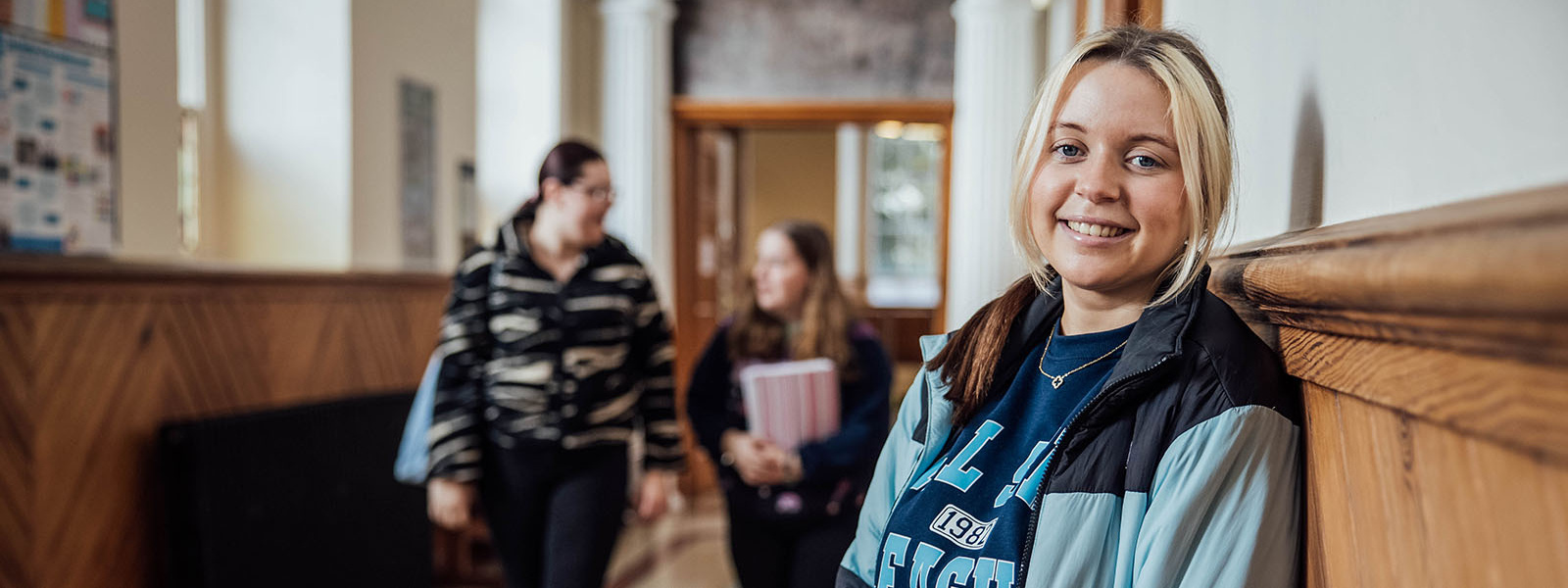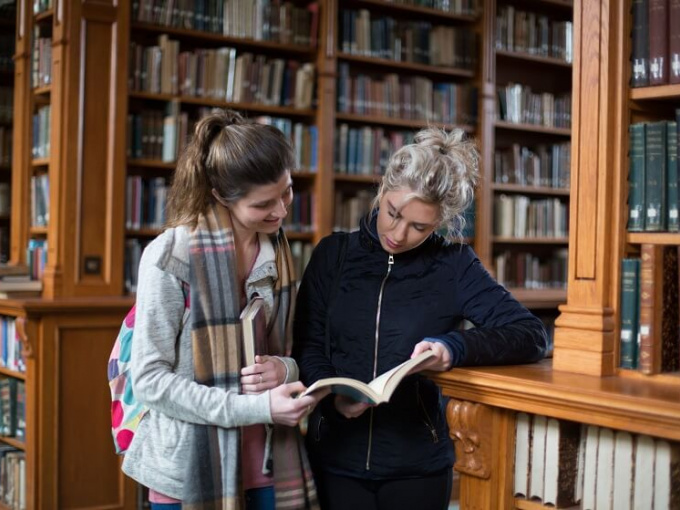BA in Education, Business Studies & Religious Studies (International applicants only)
PLEASE NOTE: This programme page is for International Students/students from abroad only who wish to study this programme in Ireland. It is not relevant for CAO applicants. Relevant programme page for CAO applicants may be found in the Undergraduate section and is labelled with a CAO code.
Places Offered: Up to 30
- Programme Overview
- Programme Content
- How to Apply
- Ask a Question
Programme Overview
The BA in Education, Business Studies and Religious Studies programme (post-primary) is a four-year, full-time, undergraduate concurrent teacher education degree, currently offered at MIC Thurles. Graduates are qualified to teach Business Studies and Religious Studies to honours Leaving Certificate level.

Why study on this programme?
Graduates of the programme will:
- Demonstrate subject knowledge, curriculum process and content, and professional knowledge
- Engage in critical and analytical thinking, problem-solving, reflection and self-evaluation
- Engage in planning, teaching, learning, assessment, classroom management and organisation for the classroom and the school as a learning organisation
- Articulate a commitment to and vision for the development of the uniqueness of the pupil in all its dimensions
- Integrate and apply knowledge skills, attitudes and values in complex and unpredictable educational settings
- Exhibit strong interpersonal skill and a readiness to be leaders and innovators of curriculum change
- Demonstrate a commitment to lifelong personal and professional development and actively participate in professional learning communities
Modules & Undergraduate Dissertation
Students are educated in the most current methodologies and technologies available to enhance the teaching of their subject areas at post-primary level. The degree programme includes four years of modules in Business Studies and Religious Studies. These are taken concurrently with education modules which include theoretical, pedagogical and professional studies along with a number of school placement experiences.
This programme places great emphasis on teaching and research and as part of their development as research-active teachers, students undertake an Undergraduate Dissertation. The Dissertation can be in either Education or a Subject discipline. Students begin the preparation for the dissertation in Year 3 where they undertake their research methods module.
School Placement
The School Placement element of the programme is designed to meet the Teaching Council’s requirements, and students will spend approximately 21 weeks in schools during the programme. This period will allow students to engage in observation, class-based and whole-school teaching and learning activities. Working in partnership with schools, the placements are designed to enable students experience class levels from junior to senior cycle within a range of school types, and where student is guided and empowered along his/her learning-to-teach journey. The level and range of teaching and learning activities increases from School Placement 1 to School Placement 4 and the student is assisted by the placement tutors and cooperating teachers to ensure that his/her practice is reflective of professional knowledge and his/her own personal commitment to the pupils’ wellbeing and learning. There is an integrated focus on subject knowledge and also inclusion and differentiation for each placement. Placements occur at four points in the programme:
- Teaching and Learning 1 - Year 1, Semester 2: Students are given the opportunity to observe teaching in practice for one week in a senior primary classroom. This observation placement provides an opportunity for students to gain an insight into the interconnection between primary and post-primary education. The placement inducts student teachers into the practice of teaching and reflection.
- School Placement 1 -Year 2, Semester 4: The focus for this six-week School Placement is on lesson planning and preparation, scheme planning and developing effective teaching strategies in their subject areas. There is also a strong emphasis on the development of critical and reflective practice, and on developing an understanding of schools as organisations. Both observation and teaching elements are integrated into this placement which is located at Junior Cycle level and /or Transition Year level. This School Placement marks the beginning of their Professional Portfolio, to be completed on an on-going basis throughout the remainder of the degree programme.
- School Placement 2 - Year 3, Semester 6: In this two week placement, students will work in special settings including the possibility of an international placement. The purpose of this placement is to support the student in becoming an inclusive teacher and to develop their confidence and competence in responding to diverse needs in the classroom.
- School Placement 3 & 4 - Year 4, Semester 8: School Placement 3 and 4 will run simultaneously over 12 weeks. School Placement 3 addresses the whole school elements of the extended placement beyond the classroom and provides structure to the student’s whole school learning throughout the placement including the continuation of the Professional Portfolio. In School Placement 4, the student teachers will plan, prepare and implement schemes of work and lesson plans in their subject areas at Junior and Senior Cycle level. There will be a strong emphasis on reflective practice throughout these modules.


Career Opportunities
This programme is accredited by the Teaching Council and has been developed in response to the growing need for excellence in teaching at post-primary level. The programme prepares graduates for their roles in all areas of professional life in education.
The following list demonstrates just some of the careers our graduates have pursued:
- Post-primary teacher
- Retail Management
- Banking
- Marketing and PR
- Human Resource Management
- Training and Development
- Educational Management
- Sales
- Entrepreneurship
- Administrative positions in faith-based organisations
- Parish and diocesan pastoral assistants and administrators
- Programme Overview
- Programme Content
- How to Apply
- Ask a Question



